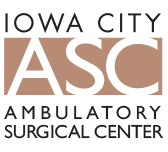It is important to make an appointment immediately if you notice any sudden changes to your vision. However, with cataracts you might not notice any changes in your vision right away.
Most cataracts develop slowly, and it might take a couple of years before they interfere with your vision.
Early detection through yearly eye exams, especially if you are over 60 or take medications that make you more susceptible, are crucial to protecting your eyes from cataracts.
Common Symptoms of Cataract
The most common symptoms of cataract formation is that your vision will become increasingly blurry.
You might just write that off as normal aging of the eyes, as it could be, but it might be a cataract developing.
As the cataract spreads, it increases the clouding over of your eye’s lens. On a clear day, things might look like they have a haze cast on them.
When cataracts reach an advanced stage, the clouding of the lens will begin to turn yellow or brown and everything will look like you are looking through dark colored glasses.
You can prevent your eyesight from being ruined from cataracts by being alert to common cataract symptoms, including:
- Double vision
- Sensitivity to bright lights or sunlight
- Seeing a halo effect around lights
- Colors do not look as bright as they once did
- Your vision is deteriorating quickly
What to Do if You Have Cataract Symptoms
If you have any of the common symptoms of cataracts, you need to see your eye doctor.
When cataracts are at an early stage, glasses with a strong prescription might be prescribed.
The doctor might also suggest wearing sunglasses with anti-glare protection to protect your eyes from bright sunlight.
These are only temporary fixes, though, and eventually you will require surgery to remove the cataract from your eye.
Cataract Surgery
Cataract surgery can be performed on an outpatient basis at the Iowa City Ambulatory Surgical Center (ASC).
Your eye doctor can remove the affected lens and insert a replacement lens to restore your vision.
Replacement lenses will last a lifetime and you will not have to worry about a cataract reforming in your eye.
After surgery, your vision will begin to return to normal within a few days.
In about a month, your eye doctor will recheck your vision and prescribe new glasses.
For additional information about cataract surgery at Iowa City ASC, check out this resource, "Cataracts - What to Expect From Surgery."
If you have further questions, or if you would like to schedule an appointment, contact us today!






